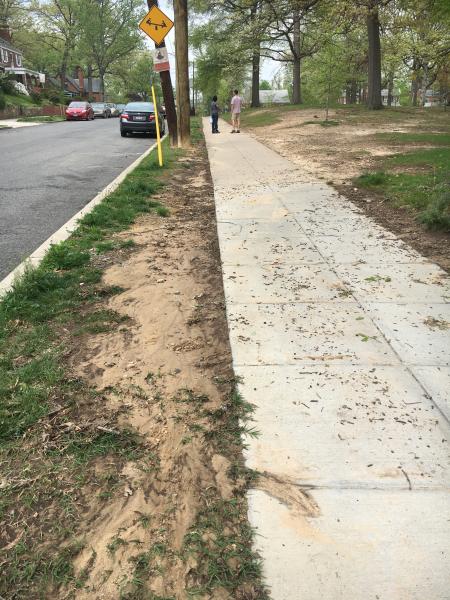<< Back to Innovative Stormwater Retrofits main page

Stormwater runoff is a major contributor of pollution to the District’s waterways and the Chesapeake Bay. Stormwater is generated during a wet weather event as precipitation runs off developed lands. The high volumes and velocities of urban stormwater runoff washes sediment from park spaces into local waterways, polluting and clogging rivers downstream. Heavy sediment loading also reduces the lifespan and functionality of our green stormwater infrastructure practices.
Stormwater management, runoff reduction and pollution source controls are key strategies the District employs to lessen the negative impact of developed lands on the District’s waterways.
DOEE’s Watershed Protection Division is working with vendors to assess compacted open lands as a potentially significant source of stormwater and sediment runoff. The more sediment can be maintained onsite, the less negative impact it will have on our upland stormwater control measures and downstream waterways, the better conditions it will provide for existing trees and/or users of the site.
To get this done, the District is researching and testing out different decompaction techniques, such as hydro and pneumatic (air) fracturing to create a network fissures and cracks in the sub-depths of the soil. Backfill keeps air and water passages open to ensure proper infiltration and transpiration on a long-term basis which creates a healthier, more sustainable environment for plants to thrive in. Check out this video of pneumatic fracturing happening at Takoma Park:
The results of this study will help DOEE to provide guidance and recommendations on best practices for land management going forward.
Background:
This project was born out of a common occurrence observed in the District: open space areas experiencing soil loss but with complicating factors (existing tree canopy, heavy public usage, etc.) that would prevent traditional field restoration techniques from being employed.
Grant: RFA#2022-2224-WPD
Project Status: Grant awarded December 2022. Two-year effort.
More Information:
Check back here often for updates as the project progresses. For questions or more information about this project, please contact: Cecilia Lane: [email protected]; 202-535-1961

